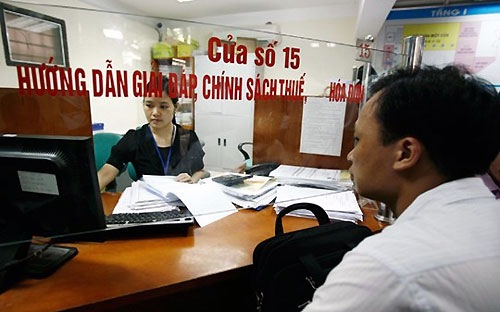During recent inspections and audits carried out by authorized agencies at multiple listed enterprises, issues related to discrepancies in the financial reports of these enterprises have been identified, despite these financial reports having previously been confirmed by independent audits. This situation has led the public to question the responsibility of the independent audit units. How to address this existing problem is an issue that is currently garnering significant public and investor interest.
Auditor Conducts Inspection Based on Sampling Method
Discussing the preparation and presentation of published financial statements, it must first be affirmed as the responsibility of the enterprise. This content is clearly stipulated in Article 5, Article 6, and Article 39 of the Accounting Law No. 88/2015/QH13 issued on November 20, 2015.
Independent auditors conduct financial statement audits aiming to provide an evaluation opinion on the truthfulness and fairness of the substantive aspects of the financial statements of the audited entity as stipulated by the Independent Audit Law No. 67/2011/QH12 issued on March 29, 2011.
According to the regulations of Vietnamese independent auditing standards, when auditing a company's financial statements, auditors perform audit procedures based on their judgment, risk assessment, and inspection via sampling method.
Auditors conduct inspections based on sampling of documents and accounting records provided by the enterprise to gather sufficient and appropriate audit evidence for forming an audit opinion. Based on the collected audit evidence, auditors evaluate whether the financial statements reflect truthfully and fairly the substantive aspects according to the prevailing accounting standards.
If enterprises provide insufficient documents, auditors have the right to request additional documents. However, the provision of additional or refusal to provide documents depends on the audited enterprise's decision.
When the enterprise provides correct and sufficient documents, accounting records, auditors have the proper basis to provide an audit opinion on the truthfulness and fairness of the substantive aspects of the enterprise's financial statements.
In cases where enterprises provide insufficient documents or refuse to provide additional documents within their authority, the scope of the audit will be affected, and independent auditors will have to issue a qualified opinion on the audit report due to the limitation in the scope of the audit.
If the audit scope is significantly affected, auditors will provide a disclaimer of opinion on the truthfulness and fairness of the company's financial statements. Meanwhile, competent state authorities have the right to mandate enterprises to provide all relevant documents concerning the company's entire business operations during inspections and audits.
In many cases, they have the authority to collect information and documents from sources other than the enterprise, to compile records and cross-reference with the records provided by the enterprise.
It can be said that the fundamental difference in the basis of independent audit opinions with audited financial statements stems from the auditing technical factor of audit sampling and based on the scope of documents and materials provided by the audited enterprise.
Understanding Auditor's Responsibilities Correctly
When there is a discrepancy in information in the published financial statements, the primary responsibility for explanation lies with the enterprise.
As mentioned above, independent auditors are responsible for providing opinions on the truthfulness and fairness of the substantive aspects of the financial statements. Therefore, independent auditors can only respond to the audit procedures performed as a basis for forming their audit opinion.
Independent auditors can hardly detect all frauds (if any) that enterprises have rationalized with documents and economic contracts. Investment and business decisions of the enterprise, whether right or wrong, also do not fall within the scope of independent auditors.
Preventing and detecting errors and fraud primarily belongs to the responsibility of the company's board of directors and management board. The Government of Vietnam has also issued Decree 41/2018/ND-CP issued on March 12, 2018, (replacing Decree 105/2013/ND-CP) on handling administrative violations in the accounting field to enhance enterprise responsibility and prevent fraud in the process of preparing and presenting information on financial statements.
According to Audit Standard No. 240, auditors' responsibilities related to fraud in the process of auditing financial statements are specified. However, this standard also clearly states that due to inherent limitations of auditing, there is an unavoidable risk that independent auditors may not detect all substantive errors and fraud affecting financial statements, even when the audit has been planned and conducted according to Vietnamese auditing standards. Therefore, independent auditors are only responsible within the scope of their opinion on the financial statements based on the documents they were provided during the audit.
Users of information on audited financial statements of enterprises should carefully read auditors' opinions along with the information and explanations of the financial statements, not just focus on the main financial information.
Independent auditing is one of the tools to help ensure market transparency through audited financial statements. The true nature of independent auditors' responsibilities should be correctly understood within the scope, responsibilities, and authority of the work they have performed.
Source: Ha Thu Thanh - Vice President of the Vietnam Association of Certified Public Accountants
 Article table of contents
Article table of contents





.Medium.png)
.Medium.png)
.Medium.png)
.Medium.png)
